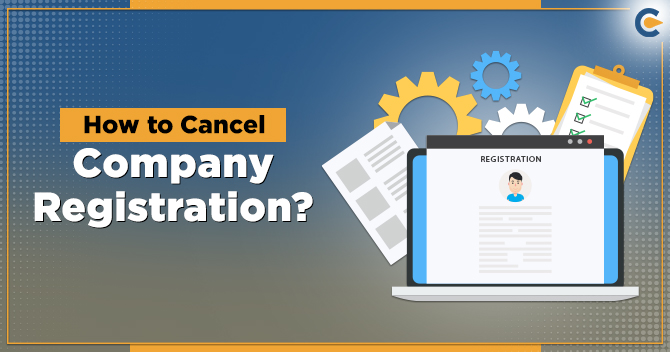Starting a business can be an exciting and daunting process. As a potential investor or consumer, it is important to ensure that the company you are dealing with is legally registered. This not only protects your interests but also ensures that the company is operating within the bounds of the law. In this blog post, we will discuss the steps to verify a company’s registration, the importance of doing so, and the consequences of not checking a company’s registration.
Importance of Verifying Company Registration
Verifying a company’s registration is crucial for several reasons. Firstly, it ensures that the company is legitimate and has gone through the necessary legal processes to operate. This gives you peace of mind when dealing with the company as you know that they are following the rules and regulations set by the government.
Secondly, verifying a company’s registration can protect you from potential scams or fraudulent activities. Unregistered companies may not have proper documentation or licenses, making them more susceptible to engaging in illegal activities. By verifying a company’s registration, you can avoid falling victim to such scams and protect your investments.
Lastly, verifying a company’s registration is essential for due diligence in business transactions. As an investor or consumer, you want to make sure that the company you are dealing with is financially stable and has a good reputation. Checking their registration status can give you valuable information about the company’s history and financial standing, allowing you to make informed decisions.
Legal Implications of Operating an Unregistered Company
Operating an unregistered company can have severe legal implications. In most countries, it is a legal requirement for businesses to register with the government before commencing operations. Failure to do so can result in fines, penalties, and even criminal charges.
Unregistered companies may also face difficulties in obtaining loans, permits, and licenses. This can hinder their growth and credibility in the market. Additionally, if a company is found to be operating without proper registration, their contracts and agreements may be deemed invalid, leading to potential legal disputes.
Step-by-Step Guide to Verifying Company Registration

Verifying a company’s registration can be a simple process if you know where to look. Here is a step-by-step guide on how to check if a company is legally registered:
Identify the Company’s Legal Name
The first step in verifying a company’s registration is to identify its legal name. This is the name that the company has registered with the government and is used for all legal purposes. It is important to note that a company’s legal name may differ from its trade name or brand name.
Check the Company’s Website
Most companies have a website where they provide information about their products, services, and operations. The company’s website may also include their registration number, date of registration, and other relevant details. This information can usually be found in the “About Us” or “Legal” section of the website.
Use Online Resources for Company Registration Verification
There are several online resources available for verifying a company’s registration. These include government portals, business directories, and third-party websites. Some popular resources include:
- Business Registries: Many countries have a central registry where all businesses are required to register. These registries often have an online database that allows you to search for a company’s registration status using their legal name or registration number.
- Business Directories: Business directories such as Dun & Bradstreet and Hoovers provide information on companies worldwide. They offer paid services that allow you to access detailed reports on a company’s financial standing, credit history, and registration status.
- Third-Party Websites: There are also several third-party websites that offer free company registration verification services. These websites may not always have up-to-date information, so it is best to cross-check the results with other sources.
Check Government Portals for Company Registration Confirmation
In addition to business registries, many governments have dedicated portals for company registration confirmation. These portals are usually maintained by the relevant government agency responsible for business registrations. They provide detailed information on a company’s registration status, including their legal name, date of registration, and any changes in ownership or structure.
Verify Physical Documents
If you are still unsure about a company’s registration status, you can request to see physical documents such as their certificate of incorporation or business license. These documents should be readily available upon request, and if a company refuses to provide them, it may be a red flag.
Online Resources for Company Registration Verification
As mentioned earlier, there are several online resources available for verifying a company’s registration. Here are some popular options:
- US Securities and Exchange Commission (SEC): The SEC has an online database called EDGAR (Electronic Data Gathering, Analysis, and Retrieval) that allows you to search for registered companies in the United States.
- European Business Register: This is a network of business registers from European countries that provides access to company information across Europe.
- Companies House: This is the official register of companies in the United Kingdom. Their website allows you to search for company information using their name, registration number, or address.
Government Portals for Company Registration Confirmation
Apart from business registries, many governments have dedicated portals for company registration confirmation. Here are some examples:
- Singapore Accounting and Corporate Regulatory Authority (ACRA): ACRA has an online portal called BizFile+ that allows you to search for registered companies in Singapore.
- Australian Securities and Investments Commission (ASIC): ASIC has an online database called ASIC Connect that provides information on registered companies in Australia.
- Companies and Intellectual Property Commission (CIPC): CIPC is the official register of companies in South Africa. Their website allows you to search for company information using their name, registration number, or director’s name.
Consequences of Not Checking Company Registration

Not checking a company’s registration can have serious consequences for both investors and consumers. Here are some potential risks:
- Financial Loss: Unregistered companies may not have proper documentation or licenses, making them more susceptible to engaging in illegal activities. This puts your investments at risk, and you may end up losing money.
- Legal Disputes: If a company is found to be operating without proper registration, their contracts and agreements may be deemed invalid, leading to potential legal disputes. This can be time-consuming and costly for all parties involved.
- Reputation Damage: As a consumer, dealing with an unregistered company can damage your reputation if the company is involved in fraudulent activities. This can also affect your relationships with other businesses and customers.
Best Practices for Ensuring Company Legitimacy
Apart from verifying a company’s registration, there are other best practices that you can follow to ensure a company’s legitimacy. These include:
- Research the Company: Before investing in or doing business with a company, it is important to research their background, financial standing, and reputation. This can help you make informed decisions and avoid potential risks.
- Check for Complaints: Look for any complaints or negative reviews about the company online. This can give you an idea of their customer service and how they handle issues.
- Ask for References: If possible, ask the company for references from previous clients or partners. This can give you valuable insights into their operations and credibility.
- Consult a Professional: If you are unsure about a company’s registration status or need help with due diligence, consider consulting a legal or financial professional. They can provide you with expert advice and guidance.
Benefits of Verifying Company Registration
Verifying a company’s registration has several benefits for both investors and consumers. These include:
- Peace of Mind: Knowing that the company you are dealing with is legally registered can give you peace of mind and protect your interests.
- Avoiding Scams: By verifying a company’s registration, you can avoid falling victim to potential scams or fraudulent activities.
- Informed Decisions: Checking a company’s registration status can provide you with valuable information about their history, financial standing, and reputation. This allows you to make informed decisions when investing or doing business with them.
- Compliance with Regulations: As an investor or consumer, it is important to ensure that the companies you deal with are following the rules and regulations set by the government. Verifying their registration status helps you ensure compliance.
- Transparency: Companies that are legally registered are more likely to be transparent in their operations and dealings. This builds trust and credibility with their stakeholders.
Due Diligence in Business Transactions
Due diligence is the process of investigating and verifying the information provided by a company before entering into a business transaction. It is an essential step in mitigating risks and ensuring the legitimacy of a company. Here are some key aspects of due diligence:
- Financial Due Diligence: This involves reviewing a company’s financial statements, tax records, and other financial documents to assess their financial health and stability.
- Legal Due Diligence: This involves reviewing a company’s legal documents, contracts, and licenses to ensure compliance with laws and regulations.
- Operational Due Diligence: This involves assessing a company’s operations, processes, and systems to identify any potential risks or issues.
- Commercial Due Diligence: This involves researching the market, competitors, and industry trends to understand a company’s position and potential for growth.
Conclusion
In conclusion, verifying a company’s registration is crucial for ensuring its legitimacy and protecting your interests. It is a simple process that can be done using online resources or by requesting physical documents. Not checking a company’s registration can have serious consequences, including financial loss, legal disputes, and damage to reputation. By following best practices and conducting due diligence, you can make informed decisions when investing or doing business with a company. Remember, it is always better to be safe than sorry, so take the time to verify a company’s registration before engaging with them.
Read more blogs : Jennings Strouss Closing Down After 120 Years




